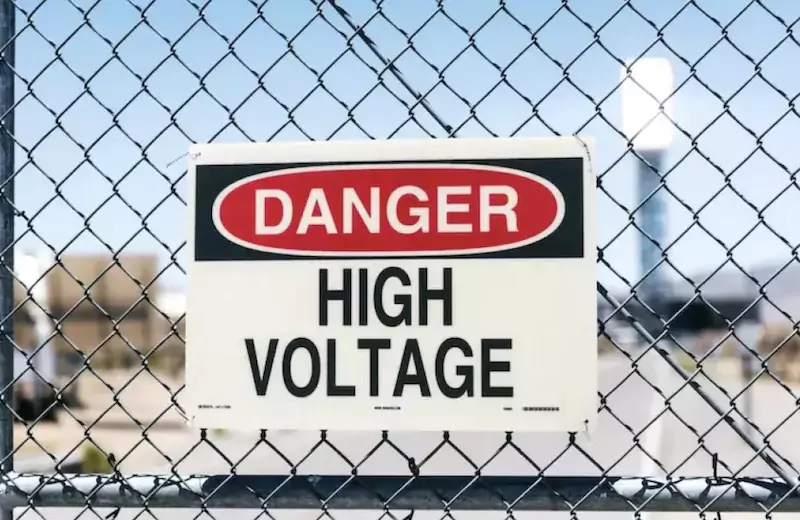Exploring High Voltage Testing Solutions

You’re probably wondering about the best way to test your device for safety. It can be tough to know where to start when it comes to high-voltage testing but don’t worry; we’re here to help.
Our guide will introduce you to everything you need to know about high voltage testing solutions, from the basics of how they work through some more advanced techniques.
Plus, we’ve got a wide range of products to help make your testing process more accessible and accurate.
Read on to find out more.
What Is High Voltage Testing?
High voltage testing is a critical process for ensuring the safety of devices and equipment. Many different high-voltage testing equipment and solutions are available, each with advantages and disadvantages.
The best solution for a particular application depends on several factors, including the voltage and current requirements, the type of device being tested, and the environment in which the test will be conducted.
Transformers
One standard high-voltage testing solution is the use of a transformer. Transformers are typically used to increase or decrease the voltage of a signal, but they can also be used to generate high voltages for testing purposes.
Transformer-based solutions are often used for portable applications, as they are relatively small and lightweight. However, they can be more expensive than other types of high-voltage testing solutions.
Capacity Dividers
Another popular high-voltage testing solution is the use of a capacitive divider. Capacitive dividers create a high voltage potential difference between two conductors by storing electrical energy in a capacitor.
This solution is often used for larger devices or applications where transformer-based solutions are not feasible.
However, capacitive dividers can be more complex to design and build than other types of high-voltage testing solutions.
Inductive Dividers
The third type of high-voltage testing solution uses an inductive divider. Inductive dividers work by storing energy in an inductor, which is then used to create a high voltage potential difference between two conductors.
This type of solution is often used for applications where transformer-based solutions are not feasible. However, inductive dividers can be more complex to design and build than other types of high-voltage testing solutions.
10 Questions to Ask Before Investing
No matter which type of high-voltage testing solution you choose, working with a reputable company such as Tan Delta with extensive experience in this area is crucial. This will ensure that your device or equipment is properly tested and that potential safety hazards are identified and addressed.
So what questions should you ask before investing in a high-voltage testing solution?
1. What Is the Voltage Requirement?
This is an important question, as it will determine the type of solution you need. If you are unsure, your manufacturer should be able to provide this information.
2. What Is the Type of Equipment Being Tested?
This will help to narrow down the type of high-voltage testing solution you need. For example, if you are testing a sensitive electronic device, you will likely need a different answer than if you are testing large machinery.
3. Where Will the Test Be Conducted?
This is an important consideration. This is because some high-voltage testing solutions are unsuitable for all environments.
For example, if you are testing a device in an explosive atmosphere, you will need a solution specifically designed for this environment.
4. What Are the Potential Safety Hazards?
This is an important question to ask, as it will help to determine the type of solution you need. You should also discuss potential safety hazards with your manufacturer or a qualified testing company.
5. What Are the Costs of the High Voltage Testing Solution?
This is an important consideration, as you will need to factor in the equipment, labor, and other associated costs. Make sure to get a detailed quote from your high-voltage test company.
This way, you will know exactly what you will be paying for.
6. Is There a More Cost-Effective Solution Available?
Sometimes, a more cost-effective solution may be available that meets your needs. Make sure to discuss your options with your chosen provider before deciding.
7. What Are the Lead Times for the High Voltage Testing Solution?
This is an important question, as you must ensure that the solution can be delivered and installed promptly. Lead times vary depending on the complexity of the solution, availability of materials, and labor.
8. What Is the Warranty or Guarantee Period?
This is an important consideration, as you will want to know that your investment is protected in case of any problems. Most reputable providers will offer a warranty or guarantee period for their products and services.
9. What Are the After-Sales Service Options Available?
This is an important consideration, as you will want to know that your provider can offer support in case of any problems. Make sure to ask about the after-sales service options before making a decision.
10. What Are the Terms and Conditions of the Agreement?
Make sure to carefully read and understand the terms and conditions of any agreement before signing it. This will help to avoid any surprises down the line.
By asking these questions, you can be sure that you choose the right high-voltage test equipment for your needs.
Remember to work with a reputable provider with extensive experience in this field to protect your investment.
Ready to Do Some High Voltage Testing?
High voltage testing is essential for ensuring the safety of a device. By subjecting a device to high-voltage testing services, you can ensure that it will operate safely in all conditions.
Many solutions are available on the market, so be sure to explore all your options before deciding.
Well, we are here to help you decide which solution is right for you. Check out our blog for more articles like this and many other subjects.

